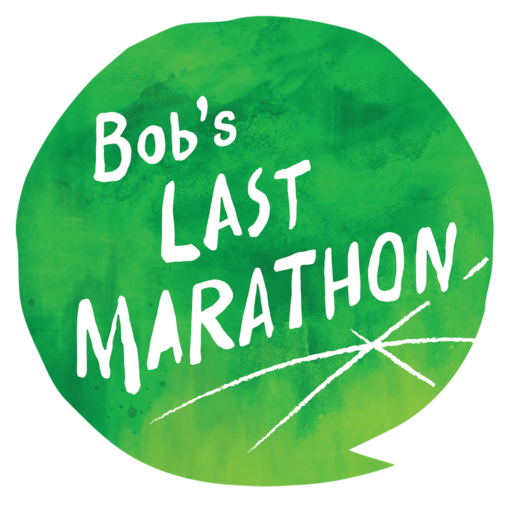Transcript
Complacency
It was late morning when I arrived at Bob’s day care center, and the outdoor July 4th festivities were in full swing. It was the first time I’d visited since the Thanksgiving luncheon. I’d been so touched and thankful for the program’s loving care of Bob, I returned later to deliver a cash donation. This time, I came prepared with my checkbook. There was a band, people milling around, participants seated with staff and family members—but no sign of Bob. Eventually I found Kathy, the receptionist, who somewhat sheepishly informed me that Bob was inside.
In the corner of a large empty hall at a round table that seated at least 10 people, there was Bob, sitting alone. At this point in his disease Bob was largely confined to his wheelchair, but he was as calm and good-natured as ever. So he wasn’t in danger being alone for a little while, but why wasn’t my very social husband enjoying the party with everyone else?
I sat down beside him, not knowing what to expect, and was soon joined by Thomas, Bob’s home care aide, to share in the festivities. The table gradually filled with participants and staff, and when the waiter came for our order, Bob gleefully chose a hamburger. Curiously, the staff member across the table looked surprised. Bob devoured his burger, and after I took a few bites of my hot dog, I left Bob and Thomas to talk to Kathy.
She told me that Bob had been eating separately because of his restricted soft food diet, and when he sat with other participants, he would try to grab food from someone else’s plate. I was shocked. Not so much by Bob’s behavior, but what was this “restricted diet”? Kathy explained that the day care center’s speech therapist had diagnosed Bob with a swallowing problem and he needed to eat only soft food. This was all news to me—there was absolutely no sign of swallowing difficulties at home. Thomas and I would have noticed because one of us was with him at every meal. In fact, because I loved how much Bob enjoyed food, I had recently made a video of him eating a meal of chicken, cherry tomatoes, and olives.
What unfolded over the next few days brought a sad and abrupt end to five years of a good experience for Bob at the day care center.
About a year before this 4th of July shock, the previous program director had left, and a new director, I’ll call her Emily, took her place. Back then, I’d made a point of meeting Emily and took part in a few of her weekly support groups. She seemed like a nice enough person, but I started to notice a significant number of emails during the day, reporting on something she found online or reminding us of upcoming dates and events. It crossed my mind that Emily was spending more time surfing the Internet than overseeing the center’s participants. At the same time, the customary updates on Bob’s status came to an end. I didn’t pay much attention because I knew Bob’s care team, and, based on how settled he seemed at home, I felt that he was doing well at day care, too.
Over the next few days I mobilized my research skills. I began by meeting with Bob’s primary care physician, who immediately ordered a swallowing test. I spoke with Sue, the new program director who had replaced Emily recently, and Kathy, who saw Bob every day. I even questioned Jack, the driver who took Bob to and from day care five days a week. I also asked our care manager, Stephne, who had been guiding me about Bob’s care for several years, to meet with the care center staff and observe Bob over the course of a day at the center.
My findings were confusing and distressing.
The first step was the swallowing test, which was with a speech therapist at our health care system, as requested by Bob’s primary care physician. It was a bit of a cliffhanger. Bob wouldn’t eat the food offered for the test. After a few tries, I told the speech therapist how much Bob loved apples, at which point the speech therapist broke into a smile and “donated” the apple from his own lunch. Sure enough, it worked. And, as Thomas and I suspected, there was nothing wrong with Bob’s swallowing.
At the day care center, word had it that Bob was uncooperative. Plus, with his declining mobility, Bob now required two people instead of one to help him with even basic routines like going to the bathroom. Overall, Bob had become more of a challenge.
This was confirmed by Kathy and the new director, Sue. I had known Sue through a mutual friend, and was relieved to be able to talk to her. Sue was extremely kind and agreed the center was remiss in neglecting to inform me about the speech therapist’s assessment. But both she and Kathy were clear: They wanted to reduce Bob’s hours and ultimately phase out his attendance.
In turn, I was clear with them. I could understand an error in diagnosis—these things happen in the best of institutions—but I held the center responsible for not notifying me. If the problem was serious enough to change Bob’s diet, shouldn’t we have made the changes at home as well? Couldn’t this put Bob’s health or life at risk?
Before leaving, I agreed to the reduced schedule.
The next day, I informed the day care center that Bob would not be returning. I saw no reason to prolong a difficult situation. To fill in Bob’s schedule, I modified his routines as best I could. Jack took Bob out for a drive twice a week. I added more art therapy sessions and exercise outings with his trainer. Bob spent more time with Thomas at nearby nature preserves, feeding ducks and enjoying the beautiful scenery. Bob seemed glad to be home.
Sue and Kathy would contact me every so often to check in on Bob. I never heard from the speech therapist who gave Bob the diagnosis. I thought about reporting the incident to state regulators, but decided my energy was better spent caring for Bob.
Ultimately, I place the blame on myself, and I learned an important lesson. I couldn’t take anything for granted. Over the course of five years with the day care center, an experience that had been mostly wonderful, I never had reason to believe he was not receiving good care. And because Bob seemed settled at home, I never suspected a problem during the day. The slip on my part was not acting on the most important cue: I had stopped getting reports from the director. This oversight had likely led to some discomfort, if not distress, for Bob during his last few weeks at the center. I had grown complacent. Luckily I caught it before more damage was done.
But happily Bob thrived at home—and ate the food he loved to the very end. In my mind’s eye, I can see Bob eating a peach the night before he passed away.

